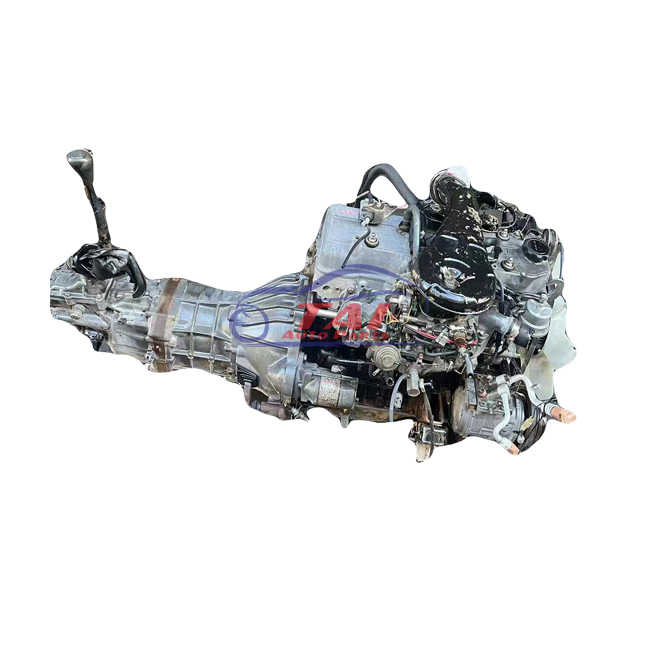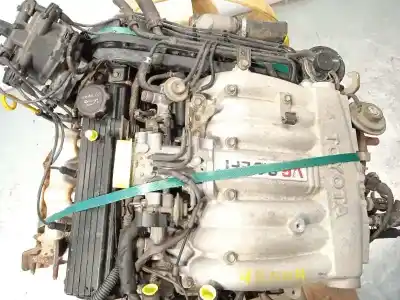Toyota RunX RSI: The Compact Automobile With a Powerful Side
Explore High Quality and Value: Your Overview to Purchasing a Used Engine
When considering the purchase of a pre-owned engine, comprehending the complex equilibrium in between top quality and value is paramount. A thorough evaluation of engine reliability, background, and problem is important to guarantee an audio financial investment. By carrying out appropriate assessments and research study, possible purchasers can navigate the complexities of the market better. The nuances of warranty options and pricing techniques can considerably influence the overall decision-making procedure. As you consider these variables, one concern stays: what particular elements will ultimately lead your choice in this important investment?
Understanding Engine Types
When taking into consideration the acquisition of a pre-owned engine, understanding of the various engine kinds is essential for making an informed choice. Engines can typically be categorized into 2 primary kinds: internal burning engines and electrical engines. Internal burning engines, which consist of gas and diesel variations, depend on the combustion of fuel to generate power. Gas engines are commonly lighter and rev greater, making them appropriate for efficiency cars, while diesel engines are renowned for their torque and fuel effectiveness, usually favored in heavy-duty applications.
On the various other hand, electric engines use electrical power saved in batteries to power the car, providing a cleaner option with less relocating parts and lowered maintenance requirements. Within these classifications, there are additionally differences, such as two-stroke versus four-stroke interior burning engines, and different electric motor configurations.
Understanding these distinctions is crucial, as they influence efficiency, compatibility with existing automobile systems, and long-term functional expenses. By acquainting oneself with the various kinds of engines readily available, potential customers can much better examine their demands and choose that align with their car's demands and their individual preferences.

Evaluating Engine Problem
A thorough examination of engine condition is vital for any person taking into consideration the purchase of a used engine. Start with an aesthetic evaluation; look for indicators of oil leakages, deterioration, or any type of physical damage to the engine block. A clean engine is usually indicative of great upkeep methods, while extreme gunk might recommend overlook.
Next, assess the engine's elements, consisting of the timing belt, gaskets, and seals. Seek deterioration, as these parts can be pricey to change. In addition, check out the engine mounts, as damaged places may bring about vibrations and more mechanical issues.
A compression examination is important to gauge inner engine health. Uniform compression across all cylinders indicates a well-kept engine, whereas significant disparities might indicate inner damages or wear.
Listening to the engine throughout a start-up can give valuable insights; any type of unusual noises, such as rattling or knocking, may suggest deeper concerns. If possible, demand a test run to evaluate performance under tons. By meticulously examining these variables, potential purchasers can make enlightened choices and secure a top quality pre-owned engine.
Monitoring Engine Background
Comprehending the engine's history is important for making a knowledgeable acquisition. Knowledge of previous use, upkeep documents, and any type of previous damages can considerably affect the engine's reliability and longevity. Start by asking for the automobile identification number (VIN) or engine serial number, which enables you to trace the engine's background.
Utilize readily available resources, such as Carfax or AutoCheck, to obtain a vehicle history record. This record visit here will provide vital understandings, consisting of mishap background, service documents, and previous ownership information. Toyota RunX RSI. Pay specific focus to any kind of signs of severe damages or repeated repair work, which might suggest underlying concerns
Ask about upkeep routines done on the engine. Regular oil modifications, timing belt replacements, and other safety nets mirror liable ownership. Furthermore, ask if the engine has actually undergone any kind of alterations, as non-standard modifications can impact efficiency and compatibility with your automobile.
Last but not least, preferably, seek verification from a relied on technician that can assess the engine's condition based upon its background (Toyota RunX RSI). This complete investigation will certainly aid you avoid prospective risks and make certain that your financial investment is worthwhile and sound
Service Warranty and Return Plans
Buying a pre-owned engine usually comes with differing service warranty and return policies that can considerably impact your choice. When considering a used engine, it is vital to extensively review the service warranty options offered by the vendor. Some vendors might use restricted service warranties that cover details parts for a specified duration, while others may provide even more extensive protection. Recognizing the conditions and terms attached to these service warranties is essential, as they can influence the long-lasting worth and dependability of your purchase.

Additionally, trustworthy vendors typically offer documentation that describes the service warranty and return procedure, guaranteeing openness. Constantly request for this details prior to finalizing your acquisition. A distinct guarantee and return policy can supply satisfaction and safeguard your investment, making it an important part of the decision-making process when getting a second-hand engine.
Finding the Ideal Offers
When seeking the best offers on a second-hand engine, it is crucial to perform detailed research and compare prices from numerous sellers. Start by checking out on-line marketplaces, auto online forums, and local salvage yards to collect an extensive understanding of the market. Utilizing cost contrast devices can simplify this process, highlighting affordable prices throughout various platforms.

Take into consideration timing your acquisition tactically. Seasonal fluctuations popular can affect rates, with certain times of the year offering far better deals. Furthermore, be open to bargaining rates; numerous sellers may be eager to decrease their asking cost, specifically if the engine has been listed for an extended period.
Final Thought
In summary, buying a second-hand engine demands a comprehensive assessment of top quality and worth. advice Evaluating engine problem with examinations and examinations, confirming its history, and comprehending service warranty and return policies are important steps. Additionally, contrasting costs throughout various sellers makes sure the most effective economic choice. By adhering to these guidelines, buyers can enhance their chances of getting a reputable engine that fulfills their requirements while staying clear of possible risks connected with second-hand purchases.
When thinking about the acquisition of a pre-owned engine, understanding of the numerous engine types is important for making an informed choice. Engines can generally be categorized into 2 primary types: interior burning engines and electrical engines. Gasoline engines are normally lighter and rev higher, making them suitable for efficiency cars, while diesel engines are renowned for their torque and fuel effectiveness, usually preferred in heavy-duty applications.
A comprehensive analysis of engine problem is paramount for anyone considering the purchase of a used engine. Start by requesting the lorry identification number (VIN) or engine serial number, which permits you to map the engine's history.